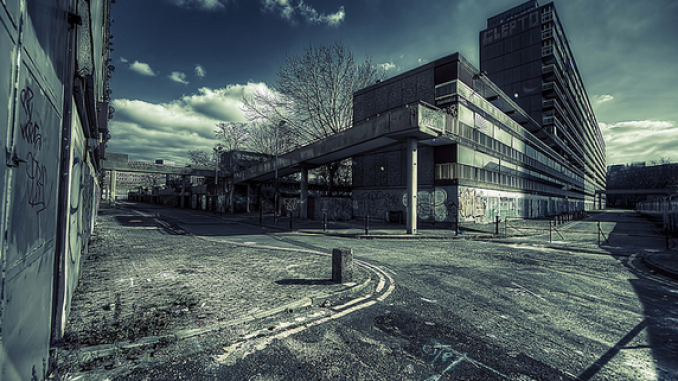
“How is it to lose your home? What does it mean to be ‘regenerated’ and be asked to leave your home where there is no alternative presented to you but to lose your home. What does ‘home’ mean to people in this instance – isn’t it a vast collection of memories, events, experiences and also connections to others around you? How do you ‘regenerate’ those very personal aspects of people’s home lives and their community?”
The Heygate Was Home Digital Archive collects the testimony of several former residents of Heygate, the social housing estate in Elephant & Castle, London, whose demolition began some months ago. It was in the wrong place at the wrong time; less than 1 km from Buckingham Palace, in the years of the Olympic Games. Suddenly, its inhabitants found themselves inserted into the typical narrative of demonization, cheated by the local authorities, and finally pushed towards the extreme fringes of the metropolitan area. And all with the aim of being ‘regenerated’…
- Southwark notes: ¡Regeneration is violence! a blog of critique and commentaries from the southern neighborhoods struck by urbanistic violence. An example of their anti-gentrification workshops
- Staying put: an anti-gentrification handbook for council estates in London, written by the urban geographer Loretta Lees!
- “The city that privatised itself to death“, Ian Martin, The Guardian, 24/2/2015: London is now a set of improbable sex toys poking gormlessly into the air; are Londoners resigned to a grey cloud of commerce, or can they reclaim a hopeful, collective future?
- “Poor fetiches and poor critiques: the greater problem of gentrification“, Trespassingassemblies, 27/2/2015: to identify this phenomenon with hipsters moving in to poor neighborhoods, can easily led us to forget that the biggest numbers of expulsions are an effect of planned regenerations led by the state, in partnership with the big companies.